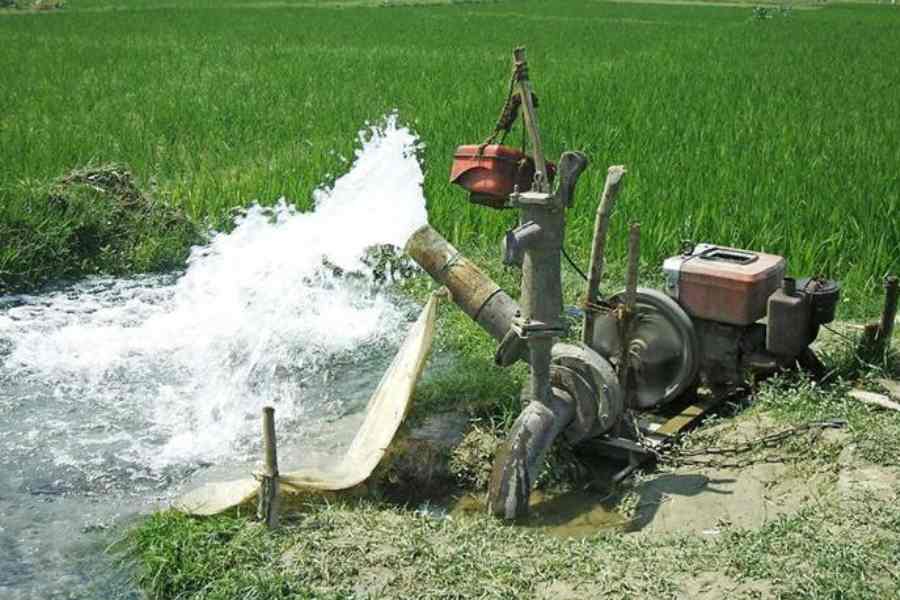Availability of water does not automatically lead to access. Farmers may struggle to get water even if it is available in a nearby river or underground. Lifting water using a tubewell or a dug well is costly for an individual farmer, especially for small and marginal farmers. Tubewells can be made economically viable through farmer collectives. The West Bengal Accelerated Development of Minor Irrigation Project, implemented by the Bengal government and supported by the World Bank, is one such initiative. Collectivising farmers makes sense as small and marginal farmers account for 96% of farmers in the state with an average land-holding size of 0.77 hectares.
The WBADMIP was initiated in 2012 to provide water to small and marginal farmers in rainfed, single-cropped areas for agriculture, horticulture and fishery through micro-irrigation schemes. To date, it has developed over 4,000 schemes benefitting around 1,40,000 water users. The target beneficiaries are provided pumps and wells by the state government. However, the beneficiaries operate and manage the schemes through water users associations.
Our study in 2019 revealed that there are, on average, 66 members in the WUAs, with 66% of members having less than 1 acre land and 95% having fewer than 3 acres. The average number of members is as high as 86 in tube-well schemes. All WUAs have a governing body and women are represented adequately. There are 130 all-women WUAs too.
General body meetings are conducted regularly. As per our study, monthly meetings were conducted by 42% WUAs, while 21% conducted meetings quarterly. Planning and implementation mechanisms are discussed in these meetings and decisions taken regarding membership charges, water charges, water distribution schedule, cropping and other income-generating activities, such as polyhouse farming, poultry, and fishing.
One of the significant contributions of the project has been the development of water detection structures, which serve as tanks and reservoirs. Furthermore, the WBADMIP has promoted around 900 solar tubewell or dug-well schemes with a cultivable common area of approximately 6,000 ha and irrigation potential of around 11,000 ha.
The WBADMIP has increased farmers’ income and savings. The savings are reinvested in education and health while higher income has reduced migration. One of the major contributions of the programme has been women’s empowerment. Overall, the programme has developed community capacity to govern institutions and plunge into entrepreneurship.
We also found that the larger the command area and higher the proportion of smaller farmers, the better the functioning of WUAs. Inducting large farmers is also beneficial due to their capacity to contribute financially and provide leadership. The heterogeneity of members, with a mix of small and larger farmers, in a WUA is beneficial but only if there is transparency in operation and the decision-making is democratic. Frequent general body meetings are essential to heighten trust. Reducing multiple power centres and revolving memberships in the governing body are imperatives.
This programme is an example of co-production with cooperation from the government and the community. This design can be replicated on a broader scale to empower the farming community. A federated structure can also derive economic value through market linkages, enabling community institutions to be sustainable.










